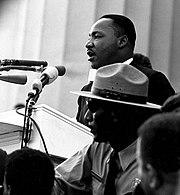Top Malaysian Islamic body prohibits yoga to Muslims
Sun, Nov 23 03:05 PM
Kuala Lumpur, Nov 23 (ANI): A top Malaysian Islamic body has reportedly issued an edict prohibiting the Muslims from practising yoga, with the view that elements of Hinduism in the ancient Indian exercise could "corrupt them".
National Fatwa Council (NFC) Chairman Abdul Shukor Husin said that many Muslims fail to understand that yoga's ultimate aim was to be one with a God of a different religion. He said that yoga, which originated in India, involves not just physical exercise but also includes spiritual elements, including chanting and worshipping, reported the Daily Times.
News of the yoga ban prompted activist Marina Mahathir to wonder what the council will ban next: "What next? Gyms? Most gyms have men and women together. Will that not be allowed any more?" she said.
Recently, the Council said that girls who act like boys violate Islamic tenets.
The government has also occasionally made similar conservative moves, banning the use of the word 'Allah' by non-Muslims earlier this year, saying it would confuse Muslims. (ANI) source
 The Pioneer
The Pioneer


